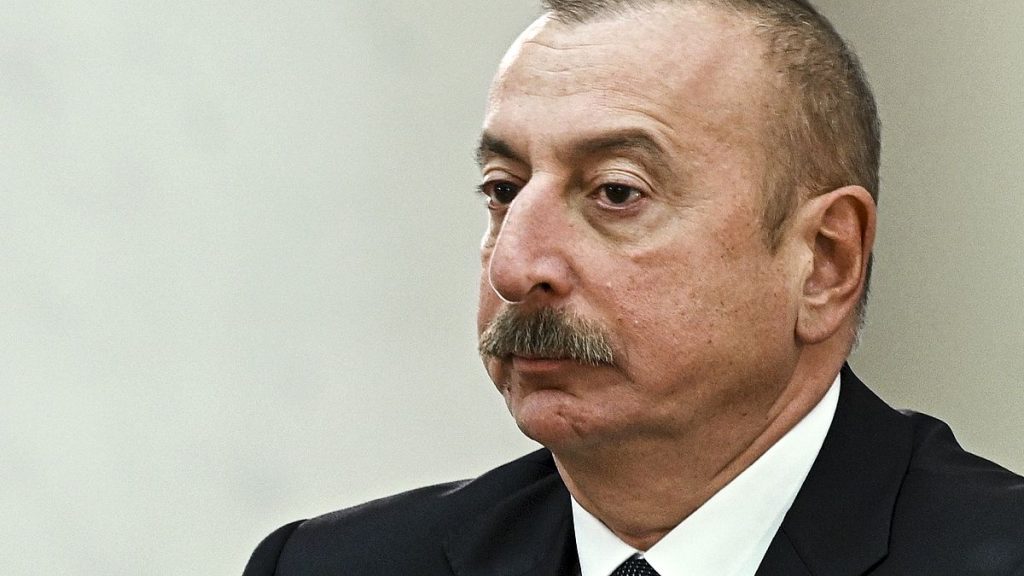The tragic downing of an Azerbaijan Airlines passenger plane near Grozny, Russia, on December 27th, resulting in the loss of 38 lives, has prompted a strong response from Azerbaijani President Ilham Aliyev. Aliyev has publicly demanded accountability from Moscow, insisting on an official acknowledgement of guilt, punishment for those responsible, and the payment of compensation to both the state and the affected families. The Azerbaijani government, citing preliminary investigations, asserts that a Russian surface-to-air missile struck the aircraft while it was within Russian airspace, flying over Chechnya. Aliyev believes, however, that the incident was unintentional. While acknowledging the need for a thorough investigation based on the black box data, he emphasized the strength of the initial findings based on the available evidence. Aliyev highlighted the rapid apology received from Russian President Vladimir Putin as a positive first step towards fulfilling his demands for justice and redress.
The incident has quickly escalated into a diplomatic matter between Azerbaijan and Russia, with Baku seeking immediate and decisive action from Moscow. The public nature of Aliyev’s demands, broadcast on state television, underscores the seriousness with which Azerbaijan views the incident and its determination to secure accountability. The assertion that a Russian missile was responsible, coupled with the claim that electronic warfare rendered the aircraft uncontrollable, points to a significant lapse in Russian air defense protocols, demanding a thorough explanation and preventative measures to avoid future tragedies. The fact that the incident occurred within Russian airspace further strengthens Azerbaijan’s claim for Russian responsibility and the imperative for a comprehensive and transparent investigation.
While Aliyev believes the downing was unintentional, he stressed the importance of Russia’s prompt admission of guilt, public apology, and commitment to hold those responsible accountable. These demands, conveyed directly to the Russian authorities, reflect Azerbaijan’s expectation of swift and decisive action from a nation considered a friendly partner. The acceptance of responsibility and the subsequent steps taken by Russia will significantly impact the bilateral relationship between the two countries. The incident has placed a strain on this relationship, and the manner in which Russia responds will be crucial in restoring trust and maintaining a positive trajectory in their diplomatic ties.
The initial explanation offered by President Putin for the incident centered around simultaneous Ukrainian drone attacks on several Russian cities, including Grozny, coinciding with the Azerbaijani flight’s approach. He asserted that Russian air defense systems were engaged in repelling these attacks. While this explanation provides context to the heightened state of alert within Russian airspace at the time, it does not fully address the specific circumstances leading to the Azerbaijani plane being targeted. The discrepancy between the Azerbaijani claim of a surface-to-air missile strike and the Russian narrative of defensive actions against drone attacks necessitates a thorough and impartial investigation to establish the precise sequence of events.
The retrieval and analysis of the aircraft’s black boxes are crucial to unlocking the definitive truth about what transpired. These flight recorders hold vital information about the plane’s systems, communications, and the actions taken by the crew leading up to the crash. This data will be instrumental in corroborating eyewitness accounts, radar data, and other evidence gathered during the investigation. The outcome of the black box analysis is eagerly awaited by both Azerbaijan and the international community as it holds the key to definitively establishing the cause of the tragedy and providing closure to the families of the victims.
The aftermath of this tragic incident highlights the critical importance of clear communication and robust air defense protocols, especially during periods of heightened security or conflict. The incident underscores the tragic consequences that can arise from misidentification, miscommunication, or malfunctions within air defense systems. The investigation’s findings will be crucial in identifying any systemic failures that contributed to the downing and informing necessary improvements in air defense procedures to prevent similar incidents from occurring in the future. The incident serves as a somber reminder of the delicate balance between national security and the safety of civilian air travel, requiring constant vigilance and rigorous adherence to established protocols.














